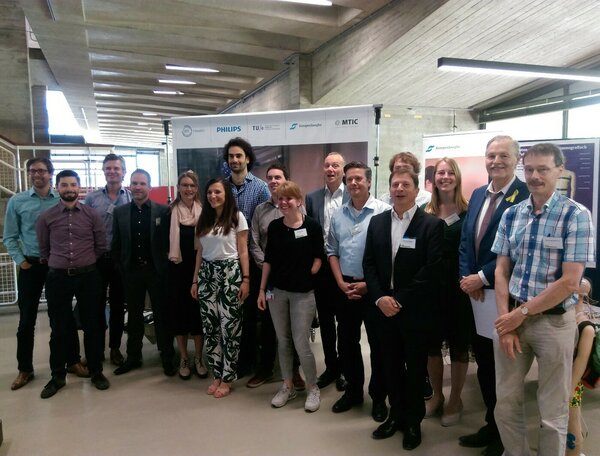
Advanced Sleep Monitoring
Sleep is an essential behavior, taking up about approximately one third of our lives. Therefore, it is not surprising that sleep disorders have a profound impact on quality of life.
Both subjective symptoms of sleep disorders as well as objective indicators of sleep quality are not constant, and can vary considerably from night to night. In current clinical practice however, sleep monitoring usually consists of only one night recording of physiological signals such as brain activity, heart rate and respiration. Moreover, current diagnostic techniques assess only a small part of the underlying pathophysiology, still using EEG-based polysomnographic measurements developed in the '60s. Therefore, there is a strong need for advanced sleep monitoring techniques that can obtain both subjective and objective data over the long term in patient friendly (at home) settings, and assess disorders on a deeper pathophysiological level.
The BM/d Research Lab is part of the e/MTIC collaboration, as such we are intensively working together with the Center for Sleep Medicine Kempenhaeghe to create a next generation ‘toolbox of sleep medicine’, improving the care process from screening, diagnosis, treatment selection towards outcome monitoring.
Research approaches include advanced analysis techniques to extract more information from current diagnostic technologies such as polysomnography. Moreover, new technologies are developed and validated to fundamentally upgrade sleep monitoring and diagnostics. These include non-obtrusive ways of long-term sleep assessment, for example based on cardiorespiratory sleep scoring. More pathophysiological insights are gained from new ways to quantify respiratory effort. The long-term tracking of subjective sleep symptoms is combined with these objective measurements. Importantly, sleep is regarded as a ’24-hour phenomenon’, implying that assessment of daytime symptoms and behavior is an essential part of the diagnostic process.